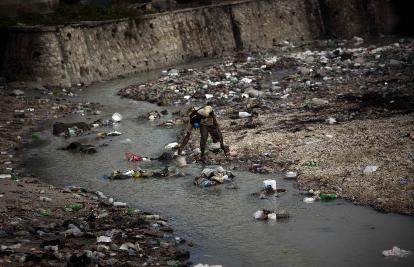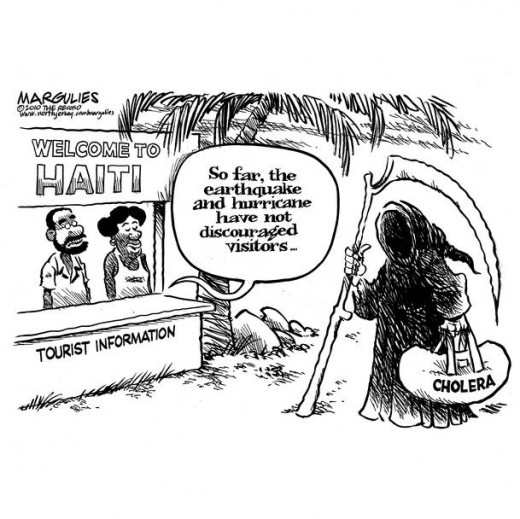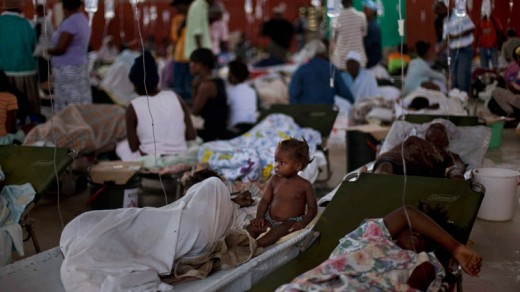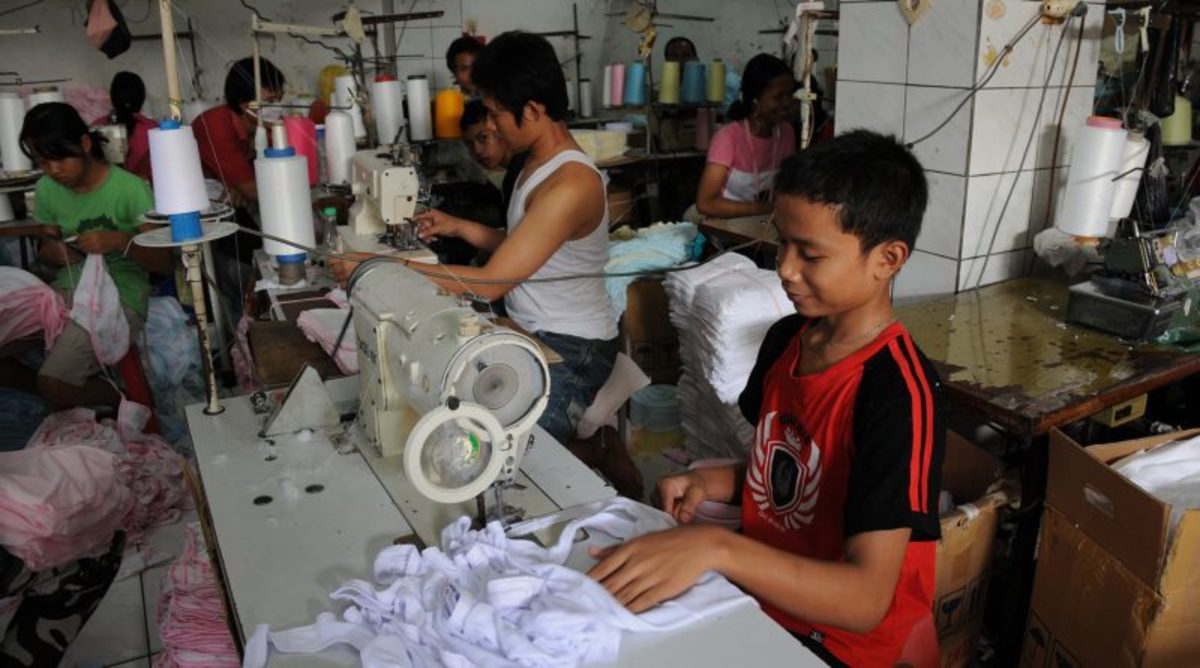The Continued Presence of Cholera in Developing Countries
Illness by Way of Disaster
Within the first pages of his masterpiece, The Secret Garden, Frances Hodgson Burnett introduces a spoiled, feeble, British child who, at the threshold of the 20th century, became orphaned in the exotic Indian landscape. It had not been a case of voluntary abandonment, but instead, a quite sudden and forced period of neglect. The young girl had hidden herself away during such a confusing occurrence, and was later found by gentleman, of whom she demanded the reason for her forgotten state. His response -Burnett assured- would leave the reader haunted: “There is nobody left to come.”[1]
While the tale of Mary Lennox, the young orphan girl, is claimed to be fictive, the historical context in which her existence unfolds is terrifyingly real; the culprit to her forsaken state is one that millions of others outside the realm of fiction have had to endure: cholera. The modernization of various sectors of the world have witnessed a precipitous drop in fatal cholera outbreaks, yet other underdeveloped regions continue to suffer the disease’s consequences, as depicted in Burnett’s novel. General ignorance towards the transmission and possible treatment of this, as well as countless other bacterial infections, contributes to the relentless toll that cholera takes in most neglected nations. Unstable government, a lack of education, poor medical training, suffering health facilities, in addition to overall poverty provide the ideal environment for these highly infectious diseases, and thereby deserve the attention of the independent organization, Human Rights Watch (HRW).
[1] Burnett, F.H. (1938). The Secret Garden. New York: Grosset and Dunlap.



The Human Rights Watch Initiative
Dedicated to the protection of human rights for all people, HRW focuses its intention on several key world issues, a few of which concern counterterrorism, international justice, and business.[1] Health is included amongst these and other universal matters as a need that is “inextricably linked” to the eventual fulfillment of human rights. The Human Rights Watch’s brochure organizes all health issues into five encompassing categories: health care access, sexual and reproductive health, disability and mental health, disasters and displaced populations, and HIV/ Tuberculosis.[2] Of these groupings, cholera conforms best to issues presented by “disasters and displaced populations”, especially in relevance to the recent series of unfortunate events that Haiti has undergone.
Since January of 2010, the population of the Caribbean republic has suffered a devastating earthquake, violent protests, and disastrous floods. These –for the most part- natural catastrophes have transformed the impoverished country into a chaotic landscape dotted with temporary living structures that provide hardly anything above unsanitary and crowded conditions, ideal for infectious diseases.[3] Here, where food, water, and human feces are nearly inseparable, microscopic bacteria, Vibro cholerae, easily contaminate essential resources and soon overwhelm the close-quartered population, where within no more than two days, infection finds itself in the walls of an individual’s intestines, and a cholera pandemic begins.[4]
Lacking a stable government, any hopes of an immediate response to such a large-scale emergency are almost inconceivable. The inaction is although not simply of Haiti’s own regime; the more developed nations capable of extending assistance to the lesser worlds remain largely immobile themselves, generally due to the avid denial of such a seemingly “archaic” disease. Yet, the HRW argues against the perpetuated ignorance of the supposedly “advanced” societies, and advocates for simple implementations, such as the use of oral rehydration therapies, in curbing the severity of a –now manageable- infection. Even with such a simple solution at hand, response is hesitant, and thousands have died and will continue to do so.[5]
Apart from this incredible political negligence are further detriments to both the re-establishment of a healthy Haitian demographic and the maintenance of healthcare in numerous other developing countries. Nigeria, for instance, exhibits a shockingly low life expectancy of only 47, while battling epidemics of both polio and cholera, the latter of which has killed 2,000 of the populace only in the recent past. Local health care in this region of Africa is inarguably underfunded and mismanaged, mainly due to the governments vested interest in improving Nigeria’s economic standing, and not its citizen’s health.[6]
These limited case studies are a small but highly accurate depiction of the common conditions of under-developed regions; individuals are dying of diseases that serve as the intrigues of classical literature in addition to possessing a history of unfailing longevity and notoriety. The HRW strive to bring change to these circumstances beyond simply encouraging the interference of state level institutions. Beyond the promotion of proper hygienic practices, the detection of early symptoms, and the dissemination of accurate medical information via public forms of communication, actions are currently being taken by this and other organizations to investigate, fund, and resolve any denial of rights to proper food and medical care and correct any negligence in accordance to the international human rights law, which states that, “every person has the rights…to an attainable standard of health, to life…to nondiscrimination and equal protection…”[7]
[1] Human Rights Watch. (2010). “About Us”. Retrieved December, 10, 2010, from
http://www.hrw.org/en/about
[2] Human Rights Watch. Health Human Rights Brochure, p. 2.
http://www.hrw.org/en/node/85750
[3] Amon, Joseph. (October 25, 2010). “Why Democracies Don’t Get Cholera”. Foreign
Policy, from http://www.hrw.org/en/news/2010/10/25/why-democracies-
dont-get-cholera
[4] Hayhurts, Chris (2001). Cholera. Rosenberg Publishing Group.
[5] Amon, Joseph. (October 25, 2010). “Why Democracies Don’t Get Cholera”. Foreign
Policy, from http://www.hrw.org/en/news/2010/10/25/why-democracies-
dont-get-cholera
[6] Amon, Joseph. (December 2, 2010). “Lead Poisoning in Nigeria ‘Unprecedented’”.
Global Post, from http://www.hrw.org/en/news/2010/12/02/lead-poisoning-
nigeria-unprecedented
[7] Human Rights Watch (January, 2009). Crisis without Limits: Human Rights and
Humanitarian Consequences of Political Repression in Zimbabwe. New York.









